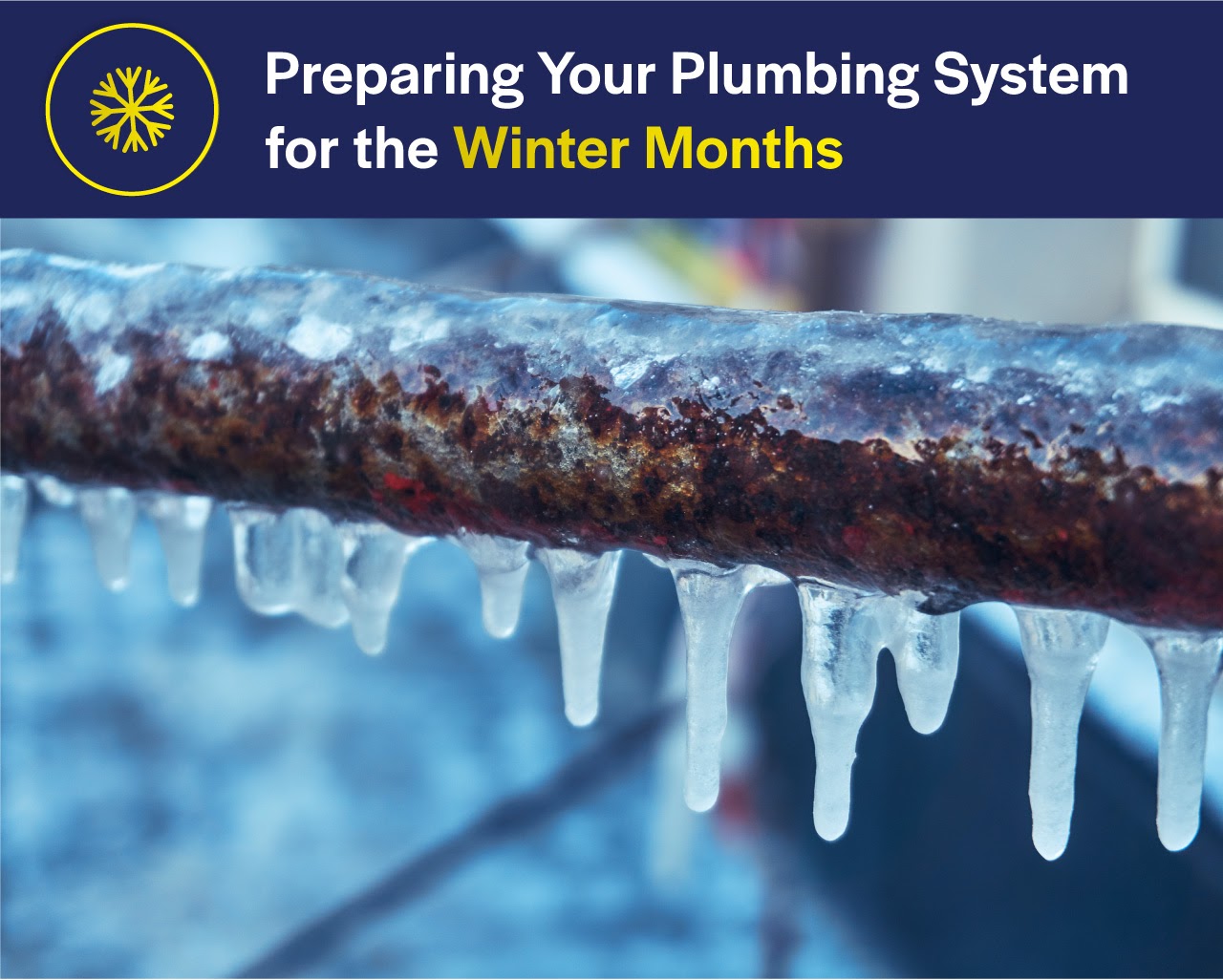
Cold, winter months can be very demanding. Everything around you needs to be adjusted to withstand brutal drops in temperature. Between car maintenance, wardrobe changes and the battle against catching the flu, winter plumbing maintenance may slip your attention. Until there is a serious issue, of course. But serious plumbing issues are not pleasant and ones that occur during the winter months, can be even more so damaging.
Fortunately there is plenty you can do before the thermostat starts to drop below 30, to ensure that your plumbing system is ready for the winter months ahead.
Winter Plumbing Maintenance
Before the freezing temperatures hit, here’s a few things you should do to prepare your plumbing system for the harsh cold.
Insulate your pipes. Especially those which are most exposed to the outside air. This includes pipes in your basement, garage or crawl space. Heat tape is one of the most popular methods for this purpose, as it is inexpensive and does the job pretty darn well. Other forms of insulation are commonly made of fiberglass, polyethylene or foam. Using a combination of these to get a good seal, will keep your pipes warm for months to come.
Check your water heater. Your water heater has to work extra hard during the winter months, to keep your water warm, so it’s important to make sure it’s working optimally. To help your water heater, it’s a good idea to keep the dial temperature at no higher than 120 degrees Fahrenheit and flushout the sediment that gathers in water heaters over time.
 Seal cracks. Specifically, any cracks and openings around windows, exterior door frames, TV / WiFi / cable wire holes in walls and floors. Use caulk and apply it directly between your pipes and the crack. This will keep warm air in and increase your home’s insulation.
Seal cracks. Specifically, any cracks and openings around windows, exterior door frames, TV / WiFi / cable wire holes in walls and floors. Use caulk and apply it directly between your pipes and the crack. This will keep warm air in and increase your home’s insulation.
Consider hydro jetting your pipes. Fall often sends dried up leaves, salt and sand down your drain system, increasing the chances for a clog which makes your pipes prone to bursting during the winter months. Hydro jetting helps clear the way so your water can flow freely, preventing it from freezing.
Check for leaks. Even the smallest leak can be much more damaging during the winter months. Water from a leak is likely to freeze, expand and damage your pipe, causing it to burst.

Check your outdoor spigots. This includes shutting off the water valves for all your outdoor spigots, draining the water in your outdoor water lines and disconnecting all hoses. It is also a good idea to cover your spigots with some insulation. Consider installing a foam insulation cover that will protect your spigots from the frigid temperatures.
Keep your indoor pipes warm. Closed kitchen and bathroom cabinet doors can prevent warm air from reaching your pipes, causing them to freeze. Leave them open to allow the warm air to pass through. Keep your thermostat above 55 degrees and eliminate any drafts inside your home. If you keep a portable heater in your bathroom or kitchen, it’s a good idea to place it where the warm will reach your pipes as well.
Leave a slow drip in your faucets. Letting the water constantly move through your pipes prevents it from freezing. This is especially important during the night time, when temperatures reach their lowest points.
Dealing with Frozen Pipes
If your pipes do freeze during the winter months, here are a few things you should do immediately, to prevent any further damage.
Locate the frozen pipes. Turn on the water in the various fixtures of your home, such as your kitchen and bathroom sinks. If the water comes out at a trickle, at one of the faucets, your pipes are frozen somewhere along the line.
Turn off the water. Once you locate the area where your pipes are frozen, turn off the water supply for the pipes in the affected area.
Relieve pressure. Turn on every other fixture in your house. Your shower, tubs, faucets and flush your toilets once. This will drain the water in your house and relieve pressure.
Thaw your pipes. Using any portable heaters, hair dryers, blankets and heat tape, thaw your pipes. Never use open flame for this purpose as your pipes are not made to withstand this type of heat and doing so will severely damage your pipes.
Check for leaks. Once the affected area thaws, it will let out a burst of water that was previously frozen. Turn your water supply on and check for leaks that could have been caused by the pipes freezing. If you see water leaking, turn off your main supply and call a plumber.
Winter can be a daunting time, but knowing who to call in the case of an emergency, will help ease your mind and keep your plumbing in the care of trained professionals. Here at VIP Drain Services our staff is ready to assist you 24/7 in case of a plumbing emergency.


